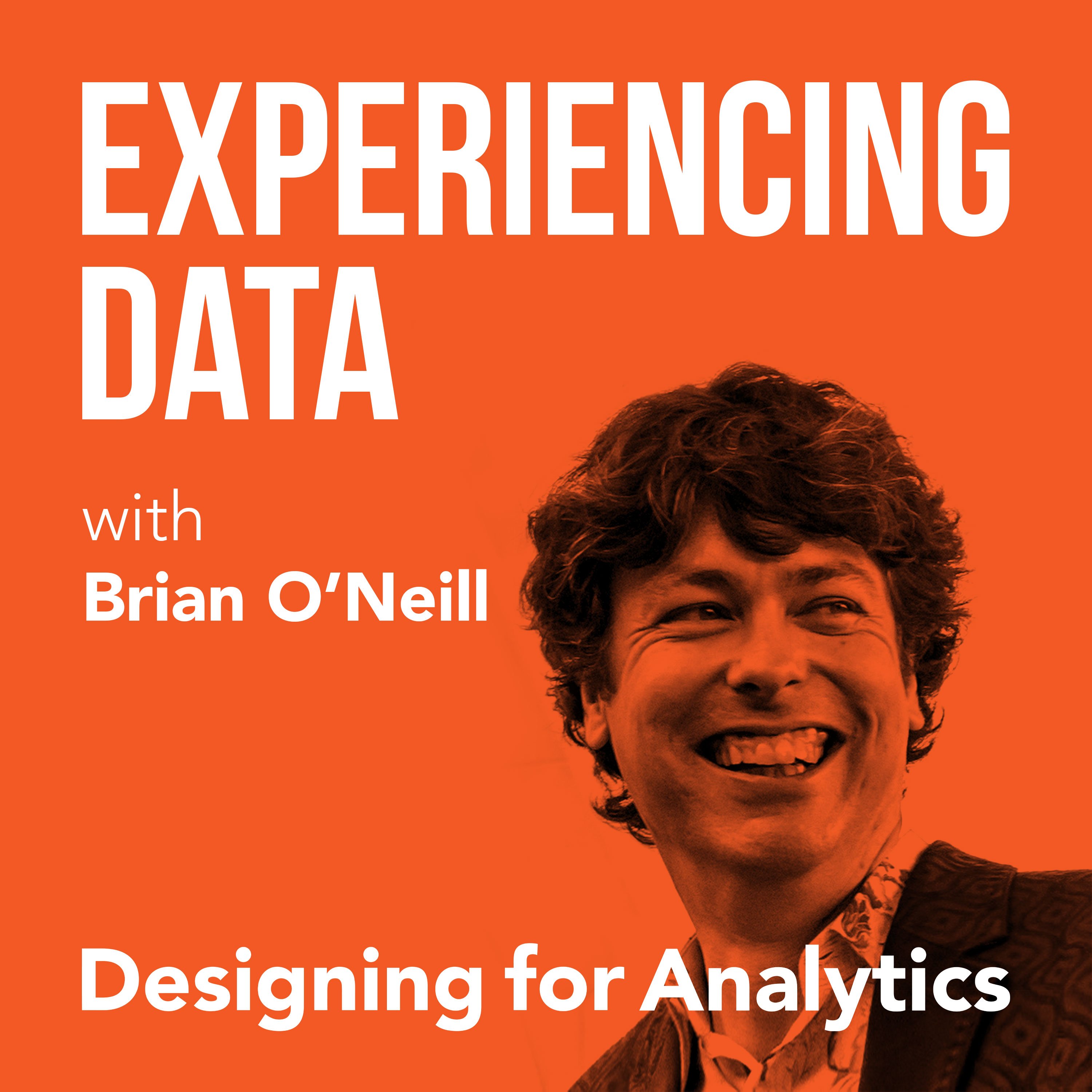
081 - The Cultural and $ Benefits of Human-Centered AI in the Enterprise: Digging Into BCG/MIT Sloan’s AI Research w/ François Candelon

Experiencing Data w/ Brian T. O’Neill (UX for AI Data Products, SAAS Analytics, Data Product Management)
Shownotes Transcript
Episode Description
The relationship between humans and artificial intelligence has been an intricate topic of conversation across many industries. François Candelon, Global Director at Boston Consulting Group Henderson Institute, has been a significant contributor to that conversation, most notably through an annual research initiative that BCG and MIT Sloan Management Review have been conducting about AI in the enterprise. In this episode, we’re digging particularly into the findings of the 2020 and 2021 studies that were just published at the time of this recording.
Through these yearly findings, the study has shown that organizations with the most competitive advantage are the ones that are focused on effectively designing AI-driven applications around the humans in the loop. As these organizations continue to generate value with AI, the gap between them and companies that do not embrace AI has only increased. To close this gap, companies will have to learn to design trustworthy AI applications that actually get used, produce value, and are designed around mutual learning between the technology and users. François claims that a “human plus AI” approach —what former *Experiencing Data *guest Ben Schneiderman calls HCAI (see Ep. 062))—can create organizational learning, trust, and improved productivity.
In this episode, we cover:
How the Henderson Institute is conducting its multi-year study with MIT Sloan Management Review. (00:43)
The core findings of the 2020 study, what the 10/20/70 rule is, and how Francois uses it to determine a company’s level of successful deployment of AI, and specific examples of what leading companies are doing in terms of user experience around AI. (03:08)
The core findings of the 2021 study, and how mutual learning between human and machine (i.e. the experience of learning from and contributing to ML applications) increases the success rate of AI deployments. (07:53)
The AI driving license for CxOs: A discussion about the gap between C-suite and data scientists and why it’s critical for teams to be agile and integrate both capabilities. (14:44)
Why companies should embed AI as the core of their operating process. (22:07)
François’ perspective on leveraging AI and why it is meant to solve problems and impact cultural change. (29:28)
Quotes from Today’s Episode
“What makes the real difference is when you have what we call organizational learning, which means that at the same time you learn from AI as an individual, as a human, AI will learn from you. And this is relatively easy to understand because as we’re in a world, which is always more uncertain, the rate of learning, the ability for an organization to learn, is one of the most important competitive advantages.”- François Candelon (04:58)
“When there is an additional effectiveness linked to AI, people will feel more comfortable, will feel augmented, not replaced, and then they will trust AI. As they trust, they are ready to have additional use cases implemented and therefore you are entering into a virtuous cycle.”- François Candelon (08:06)
“If you try to optimize human plus AI and build on their respective capabilities—humans are much better at dealing with ambiguity and AI deals with large amounts of data, If you’re able to combine both, then you’re in a situation to be ready to create a source of competitive advantage.”- François Candelon (09:36)
“I think that’s largely the point of my show and what I’m trying to focus on is to talk to the people who do want to go beyond the technical work. Building technically, right, effectively wrong solutions is something nobody needs, and at some point, not only is it not good for your career, but you might find it more rewarding to work on things that actually matter, that get used, that go into the world, that produce value. It’s more personally gratifying, not just for the business, but yourself.”- Brian T. O’Neill (@rhythmspice)) (20:55)
“Making sure that AI becomes the core of your operating process and your operating model [is] very important. I think that very often companies ask themselves, ‘how could AI help me optimize my process?’ I believe that they should now move—or at least the most advanced—are now moving to, ‘how should I make sure that I redesign my process to get the full potential of AI, to bring AI at the core of my operating model?’”- François Candelon (24:40)
“AI is a way to solve problems, not an objective in itself. So, this is why when I used to say we are an AI-enabled or an AI-powered company, it shows a capability. It shows a way of thinking and the ability to deal with the foundational capabilities of AI. It’s not something else. And this is why—for the data scientists that will be open to better understanding business—they will learn a lot, and it will be very enlightening to be able to solve these issues and to solve these problems.”- François Candelon (30:51)
“The human in the loops matter, folks. For now at least, we’re still here. It’s not all machines running machines. So, you have to figure out the human-machine interaction. It’s not going away, and so when you’re ready, it’s time to face that we need to design for the human in the loop, and we need to think about the last mile, and we need to think about change, adoption, and all the human factors that go into the solution, as well as the technologies.”- Brian T. O’Neill (@rhythmspice)) (35:35)
Links
BCG Henderson Institute: https://bcghendersoninstitute.com/)
- François on LinkedIn: https://www.linkedin.com/in/françois-candelon)